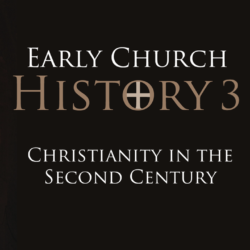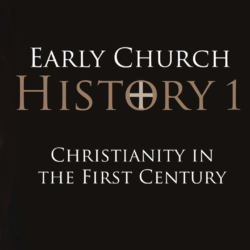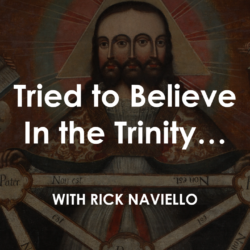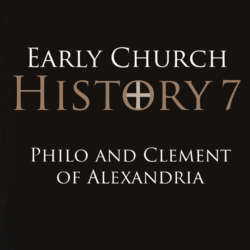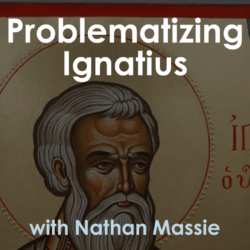This is part 15 of the Early Church History class.
We are shifting gears away from Christology to talk about the desert fathers and mothers. These were people that decided to leave the city and go off alone or in communes to practice spiritual disciplines and asceticism. They denied themselves pleasure in their pursuit of sanctification and spiritual warfare. Today we’ll go over four early founders, including Anthony, Pachomius, Basil, and Benedict. Although this subject may seem somewhat tangential to the main arc of early church history, as it turns out, these monks exercised a huge influence on Christianity at large.
Listen to this episode on Spotify or Apple Podcasts
—— Links ——
- More Restitutio resources on Christian history
- See other classes here
- Support Restitutio by donating here
- Join our Restitutio Facebook Group and follow Sean Finnegan on Twitter @RestitutioSF
- Leave a voice message via SpeakPipe with questions or comments and we may play them out on the air
- Intro music: Good Vibes by MBB Attribution-ShareAlike 3.0 Unported (CC BY-SA 3.0) Free Download / Stream: Music promoted by Audio Library.
- Who is Sean Finnegan? Read his bio here
—— Notes ——
Anthony the Great (251-356)
- One of the earliest hermits
- Athanasius of Alexandria wrote the Life of Anthony, which became an extremely popular hagiography.
- Heard what Jesus said to the rich young ruler in Matthew 19.21 and sold his possessions to give to the poor
- Trained under an old hermit (a.k.a eremite or anchorite) before going off alone
- Practiced extreme asceticism and isolation
- Repeatedly tempted and beaten by demons
- Lived in a tomb, then an abandoned Roman fort, then on a mountain
- Athanasius had Anthony come to Alexandria to endorse the eternality of the Son over against the subordinationists.
Pachomius (292-348)
- Studied 7 years under a hermit named Palaemon near Anthony in the Egyptian desert
- Went off on his own and lived as an anchorite
- Started a XXfor hermits unable physically or mentally to live alone
- Known as founder of cenobitic monasticism
- Developed a rule to govern monastery life
- Monasteries dotted the desert in Egypt, Judea, and Syria
Basil Caesarea (329-379)
- Grew up wealthy and well-educated
- Became a Christian and donated his fortune to the poor
- Studied with monks in Egypt and influenced by Pachomius
- Returned to Caesarea and began founding monasteries
- Diminished the austerity of Pachomian monasteries and adapted to life in the city where monks ran orphanages, hospices, and hospitals
- Designed a rule for monasteries, incorporating interspersed periods of worship and manual or scholarly labor
- Adapted and popularized monastery life in the Greek-speaking East
- Died in 40s probably because of ascetic practices
Benedict of Nursia (480-547)
- Gave up wealth and career as a nobleman
- Became a hermit for 3 years before a nearby monastery conscripted him to be their abbot
- They tried to poison him, but it didn’t work.
- He left and started his own monastery
- Developed the Rule of St. Benedict, which became influential in the Latin-speaking West
- At the end of his rule, he mentions Basil of Caesarea and his rule.
Review
- Although Anthony the Great was not the first hermit, he became the father of all monks.
- Anthony practiced extreme isolation and asceticism while battling demons in the African desert.
- Many found Anthony’s lifestyle attractive and sought him out, no matter how far away he settled.
- Nearby villages and cities saw the desert fathers and mothers’ battles with spirits as a benefit to society.
- Pachomius wrote a rule of community life and started several monasteries, becoming the founder of cenobitic monasticism.
- Basil of Caesarea learned from Pachomius’ monasticism and brought it to Cappadocia.
- Basil wrote a less austere rule (than Pachomius’) and pioneered having monasteries in populated areas that ran orphanages, hospices, and hostels.
- Benedict of Nursia learned from Basil’s rule and developed his own.
- Basil’s rule held sway in the Greek-speaking East and Benedict’s rule dominated the Latin-speaking West.
- Benedict’s communities emphasized renunciation, humility, and obedience as well as eight services per day, working through all 150 psalms each week.

